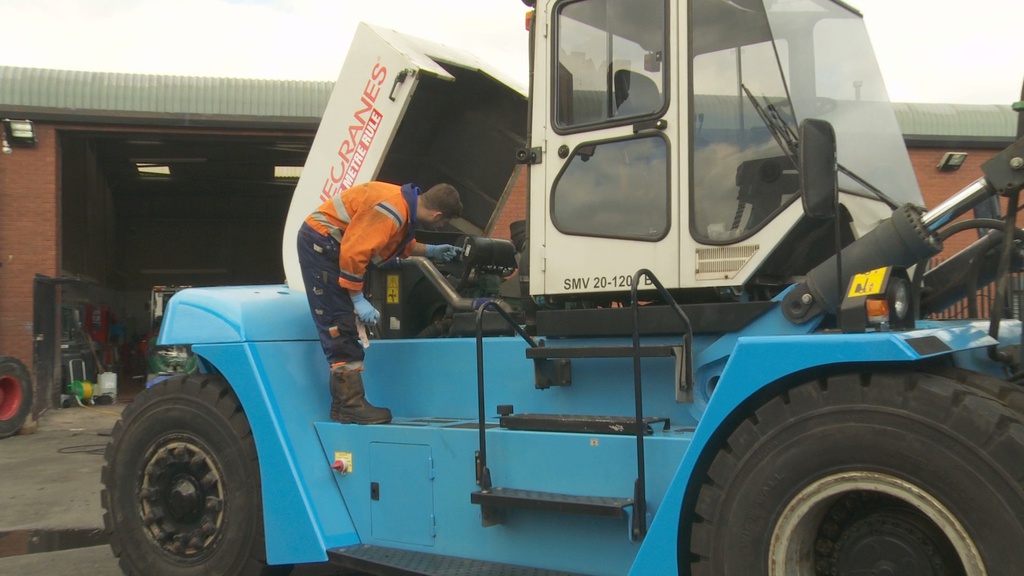
Kelly Rose
Editor

Kelly Rose
Editor
Choosing heavy lifting equipment can be a complex business. Application and machine utilisation are key factors, but for smaller businesses price tends to be the differentiator and the challenge is how to source a quality used machine that won't let them down.
Cooper Specialised Handling is an expert in heavy lifting equipment and appreciates that companies which use a heavy duty forklift truck or reach stacker for only one or two hours a day simply cannot justify the expense of new equipment.
Director Tony Rooney said: "Unfortunately, many of the heavy and specialised used machines on the market are off the continent, life-expired or have dubious histories.
"It's vital that companies do their research and base their decision on whole life costs including fuel, maintenance and parts, because what looks to be a good, low-cost handling solution at the outset can all too easily turn into a bad investment."
Cooper Specialised Handling has therefore come up with ten tips to help companies buy or rent used heavy lifting equipment with confidence:
1. Be wary of very low priced machines. You get what you pay for, so if the deal looks too good to be true, it probably is.
2. When it comes to reliability and high productivity - and achieving the best resale value - quality tells. Choose modern, quiet, low emissions, low hours machines that are LOLER-certified and have been well-maintained. In particular, pay attention to the engine, transmission and steer axle, as a failure will be costly to repair/replace.
3. Overall appearance is a good indication of how equipment has been treated. High tyre wear and/or extensive dents and scrapes suggest a machine may have been damaged through abuse or misuse.
4. Always check the equipment's authenticity. A quality machine from a reputable supplier should come with a complete, substantiated history, which includes machine hours, specification and condition.
5. Review all finance options. Don't assume that outright purchase is the only route to acquiring the forklift you want. Ask your supplier about hire purchase and transferring the asset into rental at a future date.
6. A reliable machine is one that is maintained properly. Check whether your supplier employs qualified engineers that can meet your servicing requirements and provide a fast response in the event of a breakdown.
7. For added peace of mind, make sure your chosen lifting equipment comes with a comprehensive warranty.
8. Not all warranties are the same. Check exactly what the warranty covers and ask about extending it and/or tying it in with a maintenance programme to suit your specific handling needs.
9. Choose a flexible service plan. Whether you need total fleet management to reduce your overall operating expenses or scheduled maintenance support to minimise equipment downtime, ask your supplier about a package that suits your requirements.
10. Seek advice from the experts. The best deals are available from reputable suppliers that really know this marketplace and will take the time to understand your heavy lifting requirements before recommending a cost-effective solution.
Tony added: "Heavy lifting equipment represents a significant investment for any business. For a smaller company, it becomes a commitment to the smooth running of their operation, so it's essential to make the right choice.
"The adverse effect of an unreliable machine with high ongoing costs can be considerable, potentially leading to fines for missed deadlines and putting undue strain on hard won customer relationships."

Holly Farm Business Park
Honiley
Kenilworth
CV8 1NP
UNITED KINGDOM
01926 658900